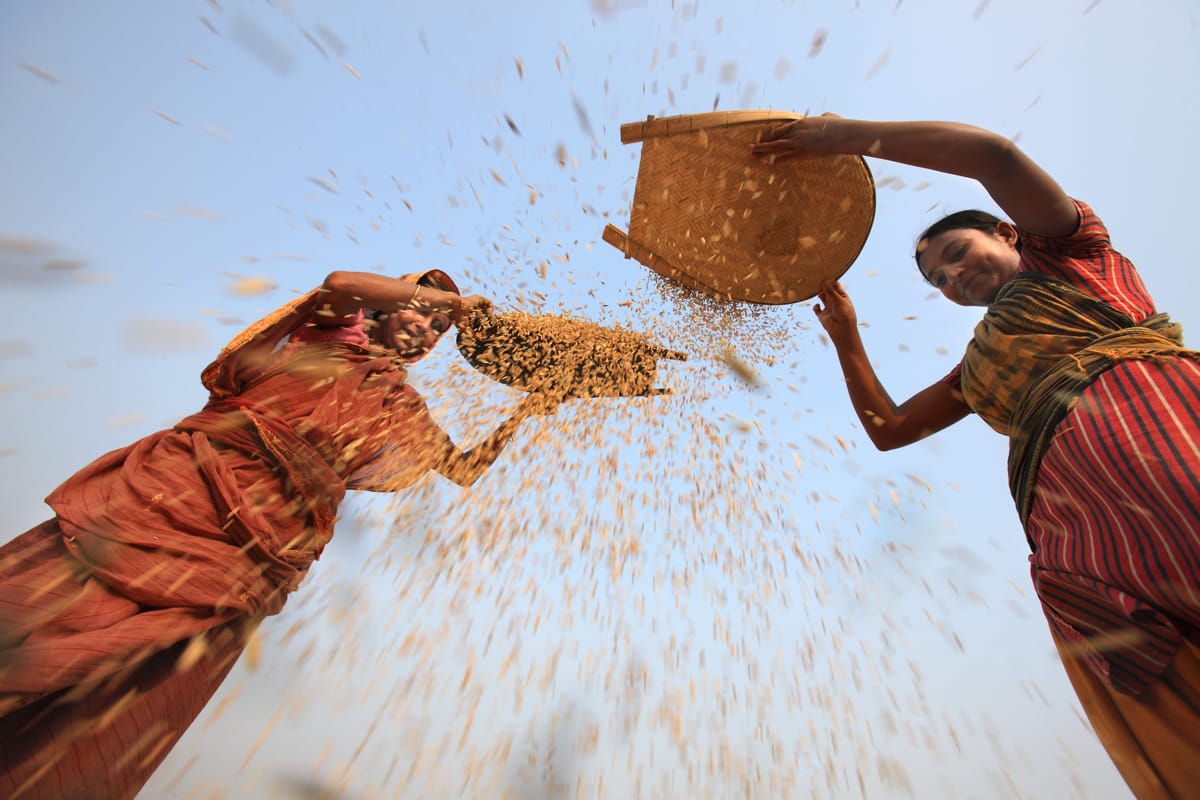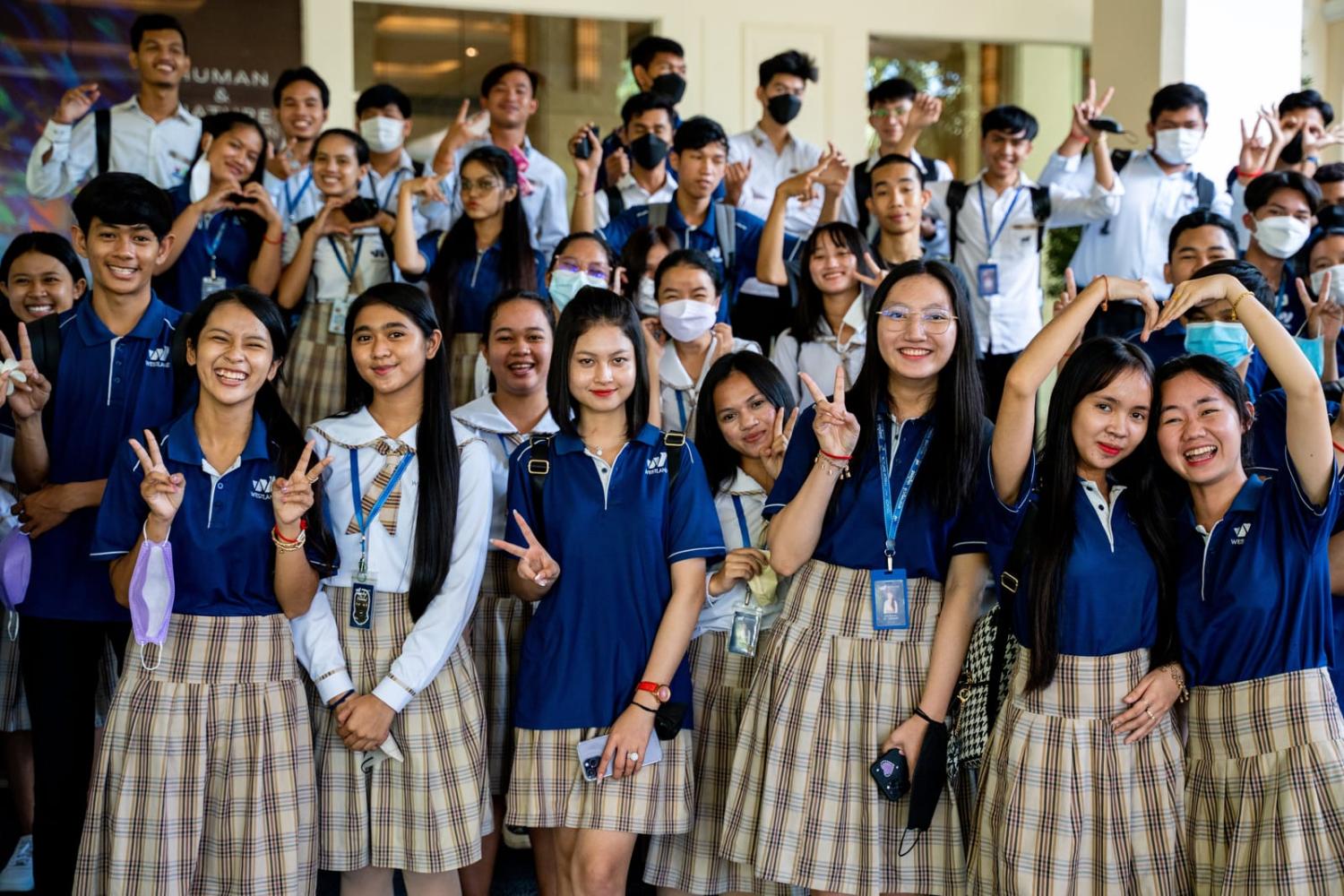Imagine the world of 2323, three centuries hence. A time when gender equity is finally achieved around the globe, according to the latest estimates of the current rate of progress.
That means 300 more years of salary discrepancies and discriminatory laws. Decade upon decade of a mismatch between women and men in political representation, education, or as victims of domestic violence.
“In the Asia-Pacific, women are doing more than three times as much care work as men,” says Sarah Knibbs, the regional director a.i. of UN Women, listing just one of many examples of challenges women continue to face.
“There’s only 24 hours in the day. So, if you’re fully occupied, balancing making a living with all of these domestic responsibilities, there’s very little time left for engaging in the community, or those pathways that might lead to leadership.”
Knibbs is speaking to me from her office in Bangkok to mark International Women’s Day. A few months ago, she was in Afghanistan, amid warnings that this year an estimated 13.8 million women and girls will be in need of food, shelter and protection. But even as the Taliban bans girls from schools, kicks women out of jobs or businesses, and prevents foreign NGOs from working in the country, Knibbs was struck by the determination, courage and resilience of local women.
“Their life has changed a lot since the Taliban came to power in August 2021. But I think what all of them are saying is they want us to hear their voice. They want us to amplify their voice … [to] always ensure there’s a space at the table for Afghan women from within the country.”
In #Kandahar, I visited one of our centres where women come together to learn new skills & listen to one another.
— Sarah Knibbs (@Sknibbs2) November 22, 2022
Also met several incredible women @UN_Women partners with across the country who provide these life-saving services for women when & where they need it the most. pic.twitter.com/nB6DRiNxDd
Raising voices is an objective for International Women’s Day, marked each year on 8 March, a reminder of how dramatic events or entrenched social norms can affect women. This is particularly important at a time when the slew of international crises can be overwhelming.
“Following on from the Covid pandemic that sent so many shockwaves across all of our lives, there are some very specific impacts that women have experienced,” Knibbs says. She points to increased levels of violence, exacerbated by lockdowns, as well as the disproportionate costs of the economic fallout, with women often engaged in less secure jobs.
And for all the progress made in advancing equality, the danger is seeing advances swept away – sometimes literally.
“We are working in a very crisis affected region, both in terms of climate related disasters and other kinds,” Knibbs says. Her work extends to the Pacific Islands region, for example, where events such as the “twin cyclones” in Vanuatu last week are expected to become increasingly common. The 2022 Tongan volcanic eruption and subsequent tsunami created immense challenges, not least cutting the country off from communications with the rest of the world. The danger, Knibbs warns, is overlooking the intersection between a major disruption and the experience for women.
“We do risk sometimes putting things in boxes,” she says, squaring her hands to make the point. “So, in this box, we speak about women’s issues and over here we speak about the climate, over here we speak about technology. And I can’t say this enough, we really need to make sure that we are looking at the gender differences that happen in each of those different spaces.”

For all the challenges in the region – whether it’s the paltry number of women in Pacific parliaments or the plight of displaced families from conflicts such as in Myanmar – Knibbs can point to bright spots of progress on women’s rights. A bit of youthful enthusiasm, if you will.
“I’m very encouraged to see the ways in which young people speak out on issues,” she says. “To see the kinds of innovation that young people in particular bring in engaging, for example, with technology.”
A clever TikTok, such as a warning about China’s treatment of Uighur minorities masquerading as a make-up tutorial, can spread a message far and wide. And as social media campaigns can build the movement towards gender equity by communicating ideas and connecting with others, there is the further practical application of technology. A present focus for UN Women is the digital economy, with the transformation of how people work, to ensure women and girls are not left behind.
“Sometimes we have to take a long view,” Knibbs says. “If we think about our own society – I’m from the UK, and you’re from Australia – we know how many years it took for people to speak really openly. And still, it can be extremely hard to speak openly about some of these issues.”
“But I think these kinds of shifts are really important because at the end of the day to make a change in terms of gender equality it is about changing people’s attitudes, changing policies, changing law.”
Quotas for women as candidates for political parties is one policy Knibbs believes can make a difference to gender equity in politics, acknowledging in many countries this approach can create a backlash. But it is also about ensuring politics is safe for women by countering misogynistic abuse online, which can have real-world consequences.
“The piece that underlines all of that is the social norms that we have. What does a leader look like? In many societies, the assumption is a leader is a man. So that’s something where we need to work very hard, I think, to make a change. And again, this is a long-term project, engaging with young people. If we can support young women to have the skills and confidence to engage, then there is much more likelihood that they would be confident to move into leadership.”


